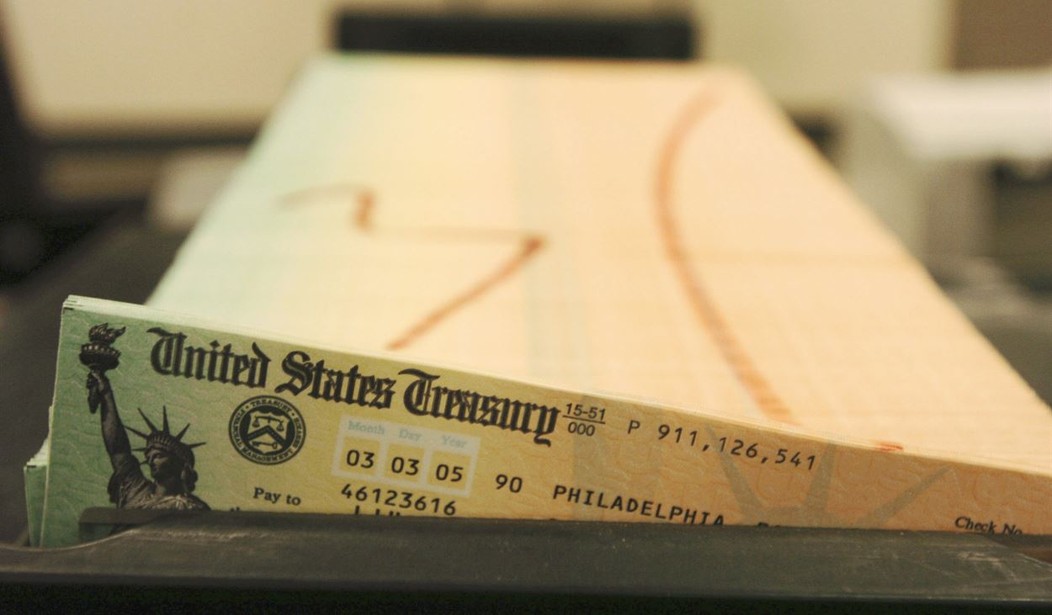Inflation is the worst in 40 years.
The price of cars is up 37%. Gas is up 49%.
During the last few years, as politicians spent ever more money, experts told us not to worry.
Jerome Powell, chair of the Federal Reserve, said inflation would be "transitory."
Treasury Secretary Janet Yellen said, "I don't anticipate inflation is going to be a problem."
Now she says, "I'm ready to retire the word transitory."
What went wrong?
"Big corporations have taken advantage," says Rep. Ted Lieu.
Sen. Elizabeth Warren tweeted: "greedy corporations are charging Americans extra." It's "price gouging."
This is nonsense.
"Greed is constant," says economist David Henderson in my new video. "If it's greed, how do we explain prices falling?" When oil prices fall, is it because "oil companies just suddenly decide, 'I'm gonna be less greedy'?"
Prices change because of supply and demand.
Inflation results "from too much money chasing too few goods," explains Henderson. "If government's spending more money, that's more money chasing too few goods."
Lately, the government borrowed from the Fed, and spent much more money. Under President Donald Trump, the national debt rose $7.8 trillion. Under President Joe Biden, it's grown $2.2 trillion in just one year. Biden wants to spend even more -- a record $6 trillion this year.
Where will they get the money? Government has no money of its own, so increased spending means politicians must borrow more, tax more, or, easiest of all, create money out of thin air by just printing it.
In the last few years, that's what they did. In an untested experiment, the Fed printed more money than ever in history.
Recommended
All this new money sloshing around the economy makes money we have less valuable. You notice the price increases, but you may not notice the damage inflation does to your savings.
If you put $10,000 under your pillow, 7% inflation will reduce that to $2,342 in just 20 years.
If you were counting on those savings for retirement, too bad. Most of your savings will be gone.
Yet today's politicians want to spend even more.
Biden claims his spending bills will "reduce inflation."
"Biden's wrong," Henderson responds. "There's no economic theory that says when the government spends a huge amount more money, prices fall."
Some people want government to stop inflation by imposing price controls.
That would be "horrible," says Henderson.
Price controls were tried before. In 1971, President Richard Nixon ordered a freeze on all prices.
It sounded reasonable. Too much inflation? Our intuition tells us that government can fix that with a price freeze. But "that's where people's intuition goes wrong," says Henderson.
Wrong because prices are not just money; they are also information.
"Prices are signals ... that guide people," explains Henderson. "Mess that up, you've really messed up the economy."
Price changes tell buyers what to avoid and sellers what to produce. When COVID-19 hit, the price of face masks rose sharply. Immediately, producers made more. New Balance switched from making footwear to making masks.
Flexible pricing gets suppliers to produce what people really need.
Now there are shortages of some products because COVID-19 interrupted supply chains.
Price controls would make the shortages worse.
Soon after Nixon froze prices, there were shortages of gasoline. I drove around, wasting gas, searching for gas stations that had it.
"Price controls are like saying it's really cold and I'm going to solve that by breaking the thermometer," says Henderson. "It's actually worse than that because breaking the thermometer doesn't reduce the temperature, whereas price controls cause actual shortages!"
Venezuela's price controls led to a shortage of food. And yet inflation got much worse. 270%, 700%, eventually 400,000% inflation!
Once inflation starts, it's hard to stop.
In Zimbabwe, President Robert Mugabe couldn't collect enough in taxes to pay for his grand plans, so he printed more money.
A few years later, Zimbabwe was printing 100 trillion-dollar bills.
Such drastic inflation hasn't happened here. It probably won't because recently the Fed reigned itself in.
But with Democrats and Republicans eager to spend more, it could happen here.
John Stossel is creator of Stossel TV and author of "Give Me a Break: How I Exposed Hucksters, Cheats, and Scam Artists and Became the Scourge of the Liberal Media."

























Join the conversation as a VIP Member